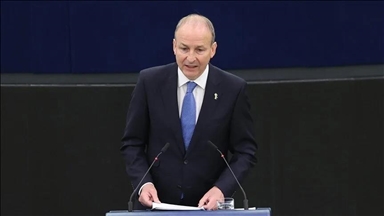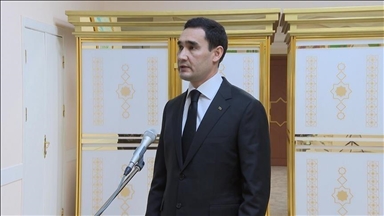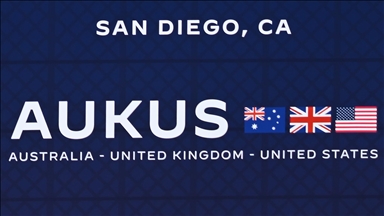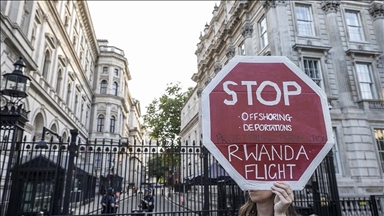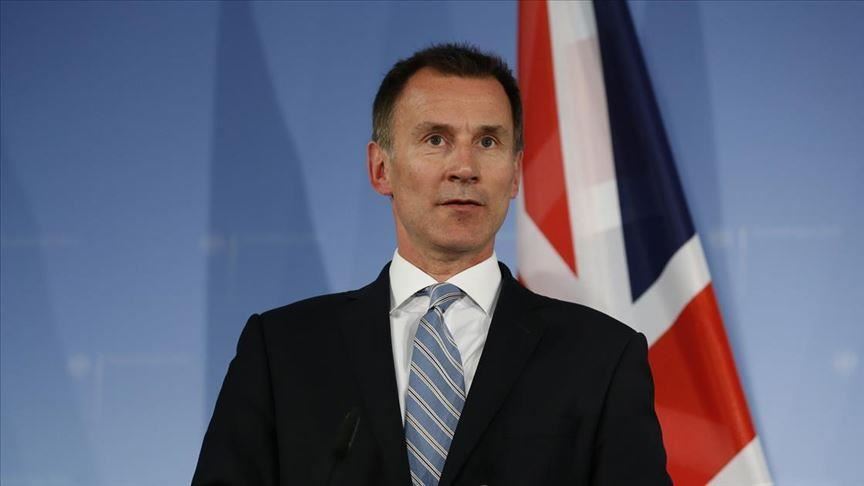
LONDON
Foreign Secretary Jeremy Hunt on Monday accused Iran of state piracy for illegally detaining a British ship in the Persian Gulf, urging it to release the vessel and its crew immediately.
Hunt argued that Iran had breached international law as well as the freedom of navigation by blocking the Stena Impero’s access to the Strait of Hormuz and illegally boarding and detaining the vessel and its crews.
“Let us be absolutely clear, under international law Iran had no right to obstruct the ship’s passage, let alone board her, it was therefore an act of state piracy in which the House will have no hesitation in condemning,” Hunt said in a statement to the House of Commons.
“Even more worryingly, this incident was a flagrant breach of the principle of free navigation on which the global trading system and world economy ultimately depends. I therefore urge Iran to release the Stena Impero and her crew and observe the rules that safeguard commercial shipping and benefit Iran as much as any other country,” he added.
Hunt said that Iran has presented the situation as a “tit-for-tat” incident following the detaining of the Grace 1 Iranian oil tanker by the royal navy in Gibraltar. However, he said, unlike the Stena Impero, the Grace 1 had breached EU sanctions by transporting oil to Syria and thus the government of Gibraltar was implementing EU law.
Hunt said as the British oil tanker was in Omani territorial waters and abiding by international maritime law, there could be no comparison between Iran’s illegal seizure of a vessel inside international shipping lanes and the enforcement of EU sanctions against an Iranian tanker inside the waters of Gibraltar, a British overseas territory.
Hunt said that since the July 4 detention of the Grace 1, the U.K. government has made strenuous efforts to resolve the tanker crisis, including speaking to the Iranian Foreign Ministry on July 13 to ensure its release if there were guarantees it would abide by EU law and not transport oil to entities listed on EU sanctions.
“Instead of responding constructively, Iran chose to seize the Stena Impero, so we must now take the appropriate action to support the safe passage of vessels through the Strait of Hormuz,” Hunt added.
Further action
On what further action the government was taking, Hunt said the Department for Transport has raised the threat level to 3 for all British commercial shipping in the region and that the U.K. along with other nations is seeking to build a European-led maritime mission to support the passage of all commercial shipping in the region.
This new mission, according to Hunt, will not be a part of the U.S.’ “maximum pressure policy” on Iran, as the U.K. wishes to preserve the 2015 Iran nuclear agreement but nonetheless has dispatched a second warship to the world’s busiest shipping lane and has advised all British ships to navigate with extra caution.
On Friday, the Stena Impero was seized by the Islamic Revolutionary Guard Corps. According to Hunt, the tanker was surrounded by four vessels and a helicopter and was rerouted into Iranian waters. Although the ship is U.K. owned, none of the 23 crew members are British.
A second ship, the Mesdar, which is Liberian flagged but managed by a British company, was surrounded by 10 speed boats and is believed to have been escorted into Iranian waters but Hunt has said the ship’s location is unclear
Last week, a British warship prevented three Iranian navy vessels from obstructing the course of a British tanker exiting the Persian Gulf. The government accused Iran of breaching international law as the tanker was not in Iranian waters.
Moreover, Britain dispatched a second warship to the Persian Gulf to support U.K. forces in the region and to ensure the safety of British commercial ships.
Royal navy marines and commandos boarded the Syria-bound Iranian oil tanker on 4 July in Gibraltar, preventing the vessel from entering the Mediterranean.
Iran has demanded the release of its crew and vessel, accusing the royal navy of piracy, and has threatened London with retaliatory measures, rhetoric that is raising tensions between the two nations in a region already inflamed with war and brinkmanship with the West.
The EU imposed a series of sanctions on the Assad regime in response to the heavy crackdown on peaceful demonstrations in 2011 and the ensuing civil war.
Anadolu Agency website contains only a portion of the news stories offered to subscribers in the AA News Broadcasting System (HAS), and in summarized form. Please contact us for subscription options.



